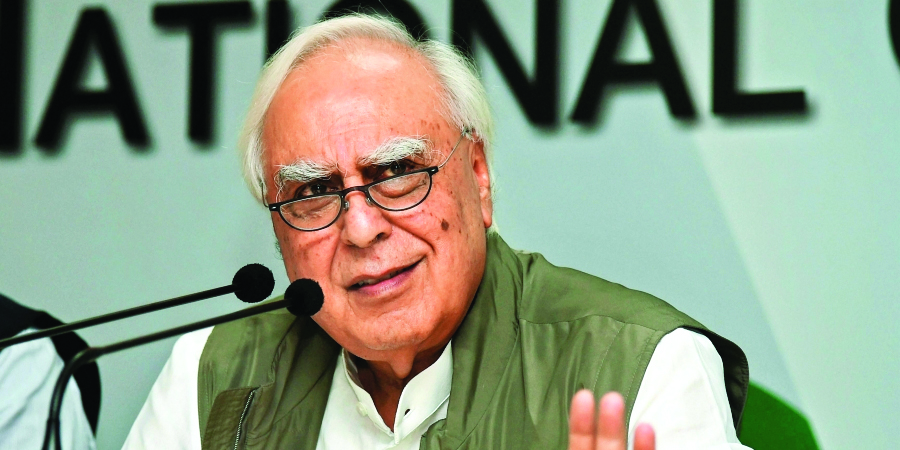Kapil Sibal alleges misuse of ED and CBI; says ‘India needs change’

New Delhi: India should have four final courts of appeal in four regions of the country, while the Supreme Court should operate with a reduced strength only to interpret the Constitution, said senior advocate and Rajya Sabha MP, Kapil Sibal, as reported by LiveLaw.
The former union minister seemed to recommend a system modelled after the American judicial architecture, with the 12 circuit appellate courts and federal circuit appellate court finally deciding thousands of cases, while the US Supreme Court comprising only nine justices usually grants cert to fewer than 150 cases that involve questions of constitutional importance every year. Sibal said:
“People from Arunachal Pradesh or Kerala should not have to come to Delhi to seek justice. In fact, it is prohibitively expensive for people from far-flung regions of the country to come to the capital to file a petition before the Supreme Court. India should be divided into four regions, each of which should have a final court of appeal that would finally decide cases that come out of the state high courts. The Supreme Court at Delhi should only have 13 judges and hear matters dealing with the Constitution.”
Sibal was speaking on Saturday at a public meeting hosted to formally launch his latest initiative, a non-electoral, non-partisan platform to fight injustice in India called ‘Insaaf ke Sipahi’(Soldier of Justice).
The goal of the platform, he said, was to present a new vision for India and to galvanise support to realise the vision. Also in attendance at the meeting was senior advocate and Rajya Sabha member, Vivek Tankha. Addressing a gathering at Jantar Mantar on Saturday, the legislator spoke out against, inter alia, the alleged targeting of opposition leaders, journalists, academicians, activists, artists, and even, students by federal agencies such as the Central Bureau of Investigation and the Directorate of Enforcement, Bharatiya Janata Party’s purported role in the collapse of elected governments, and the climate of hate in the country and communal violence.
The schools in India, Sibal further said, were understaffed and ill-equipped to provide quality education.
The appointment of ‘RSS vice chancellors in universities, and the incidents of violence inside the premises of colleges and universities due to the increasing influence of right-wing student organisation Akhil Bharatiya Vidyarthi Parishad, was alarming, he said. “How will intellectual property be developed in such a setting? How will progress happen?” Sibal asked. In this connection, he also pointed out that our spending on research and development is dismal when compared to that of the USA or China.
“India has reached a juncture where we need change, which could only be introduced by a people’s movement for justice. It should be remembered that justice is the very foundation of our Constitution. Our preamble speaks of social, economic, and political justice. But the question is, have they been secured to the people of India, which is our preambular aspiration?” Sibal said.



